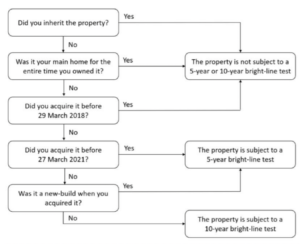
The topic of the real estate market is always front and centre in New Zealand, but the current level of commentary, like prices, is at record levels!
Opinions are as many and varied regarding the current market. One end of the spectrum believes prices are totally out of control and government are right to take action to drive prices down so everyone can buy, regardless of the destruction of wealth and breach of private property rights this might take to achieve. At the other end of the scale is the belief is there is nothing wrong with the housing market, individuals should take responsibility for putting themselves in a position to buy, and the Government should not interfere with New Zealand’s national obsession!
So, what has our current government announced they will “actually” do and what impact are their moves likely to have?
Firstly, I am pleased to see investment in infrastructure. This should, if applied efficiently, assist with increasing the supply of homes, and only through increasing supply will we address the level of price escalation. The devil of course is in the detail. How will the funding be applied for, where will it be targeted and who will make these decisions? Based on past performance following “ground-breaking” announcements, there must be a very real fear that a massive chunk of this investment and huge periods of time will be eaten up satisfying the questions above as opposed to amplifying performance and engaging in productive work. We will have to wait and see.
Secondly, I am delighted to see significant government investment in social housing. I find it appalling that in a country with all the advantages we have, that we are unable to supply safe and secure housing for those who simply cannot do so for themselves. This challenge exists no matter the state of the real estate market. Government needs to stop talking and get on with the job. If you do not understand why this is so critical take a walk along upper Queen Street in Auckland on any given day and, if you are a proud Kiwi like me, you’ll want to cry.
However, the extension of the bright line test to ten years and the removal of ability to apply mortgage interest costs against income for property investors both make little sense to me. The Government seem to continuously mix speculators and investors together. Speculators, those who buy and sell quickly for a profit, were already liable for tax on their profits. Investors however buy for the long term. In both cases, extending the bright line test will have little to no impact over and above the 5-year term previously in place.
The removal of the ability to apply interest costs against income, when property investment is a recognised business practise, seems nonsensical. It has the potential to remove a section of investors from the market, with the obvious impact of reducing the pool of properties available for those who need or choose to rent. A reduction in supply would clearly drive up rents as no corresponding reduction in demand can be expected in this area.
Any solution, to have a good chance of success, must be positive and focus on increasing supply to satisfy demand. A negative approach focused on reducing demand without addressing supply will, I fear, be doomed to fail. We will have to wait and see the outcome of the Government’s moves!
Investors and landlords need to take a deep breath right now, research their specific situation and avoid making any knee-jerk reactions to these recent changes. Investment in real estate is the basis of wealth creation across the world, in many and varied jurisdictions. New Zealand is a great example of this, and will continue to be so, regardless of the short-term challenges we may face.
No question though, this is a complex situation and given the passionate debate it provokes, which has been amplified by the announced changes, most of us, including me, would not want the job of making such decisions. But then we didn’t ask to be elected, did we?
Written By – Bryan Thompson, Managing Director Harcourts New Zealand

This change is effective from Saturday 27 March 2021 except for new builds acquired before this date (for tax purposes, a property is generally ‘acquired’ on the date a binding sale and purchase agreement is entered into, even if the agreement is still conditional).
What the proposed changes mean if you acquire a residential property on or after 27 March 2021:
If you sell the property more than 10 years after acquiring it (or 5 years for a new build), you will not pay tax under the bright-line test on any gain in value. If you sell the property within 10 years of acquiring it (or 5 years for a new build), and it was your main home for the entire time you owned it, you will not pay tax under the bright-line test on any gain in value.
However, if the property was your main home, but was also a residential investment property for a period of time, the Government intends to introduce a ‘change of use’ rule. This will affect the way tax is calculated if the property was not used as the owner’s main home for more than 12 months at a time within the applicable bright-line period. A property subject to the change-of-use rule will only be required to pay income tax on a portion of the profit made through the property increasing in value, proportionate to the time the property was not the owner’s main home.
If you sell the property within 10 years of acquiring it (or 5 years for a new build), and it was never your main home, you will pay tax under the bright-line test on any gain in value. Source IRD
Interest deductions on residential property
The Government is changing the rules that allow property owners to claim interest on loans used for residential properties as an expense against their income from those properties. The legislation will apply from 1 October 2021.
Currently when owners of residential investment property calculate their taxable income, they can deduct the interest on loans that relate to the income from those properties (claimed
as an expense). This reduces the tax they need to pay. The Government has proposed to change these rules.
The Government will consult on the detail of these proposals and legislation will be introduced shortly thereafter. Consultation will cover the details of an exemption for new builds acquired as a residential investment property, and whether all people who are taxed on the sale of a property (for example under the bright-line tests) should be able to deduct their interest expense at the time of the sale. The legislation will apply from 1 October 2021.
Interest deductions on residential investment property acquired on or after 27 March 2021 will not be allowed from 1 October 2021. Interest on loans for properties acquired before 27 March 2021 can still be claimed as an expense. However, the amount you can claim will be reduced over the next four income years until it is completely phased out, as shown in the table below.

This means that in the 2025–26 and later income years, property investors will not be able to claim any interest expense as deductions against their income. If money is borrowed on or after 27 March 2021 to maintain or improve property acquired before 27 March 2021, it will be treated the same as a loan for a property acquired on or after 27 March 2021. Interest on the loan cannot be claimed as an expense from 1 October 2021.
Property developers (who pay tax on the sale of property) will not be affected by this change. They will still be able to claim interest as an expense.
